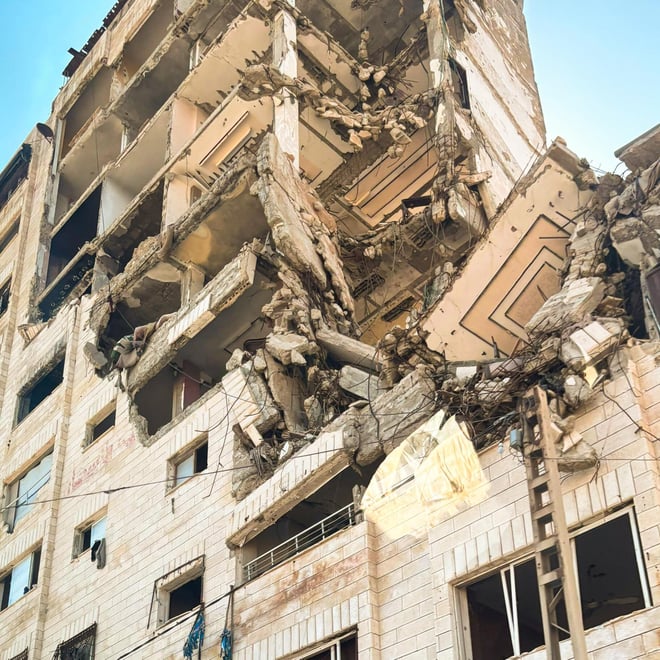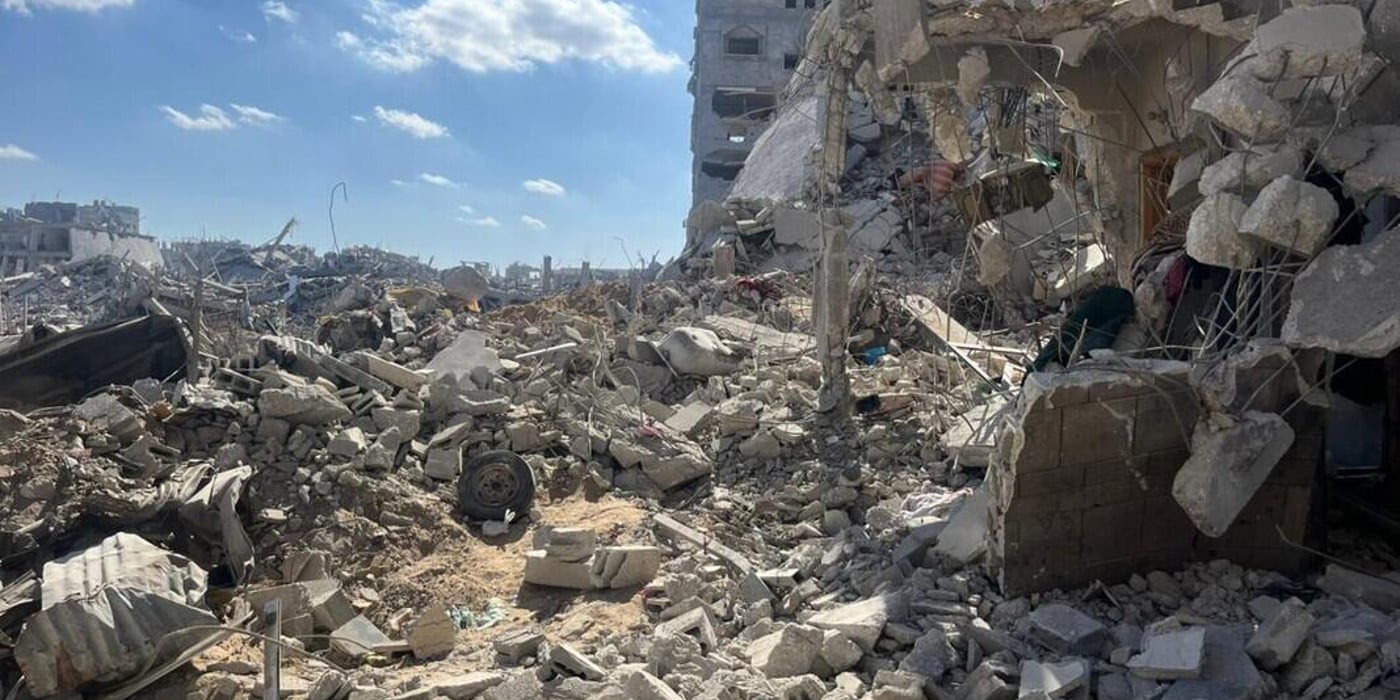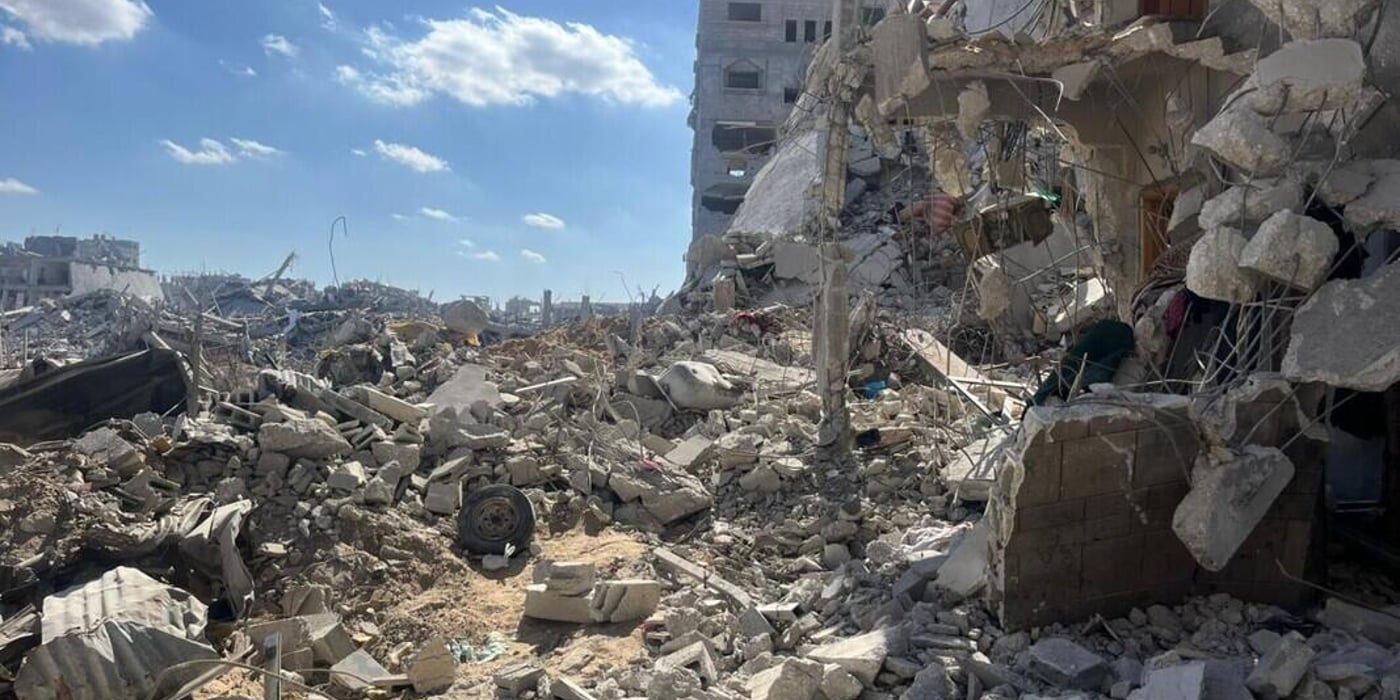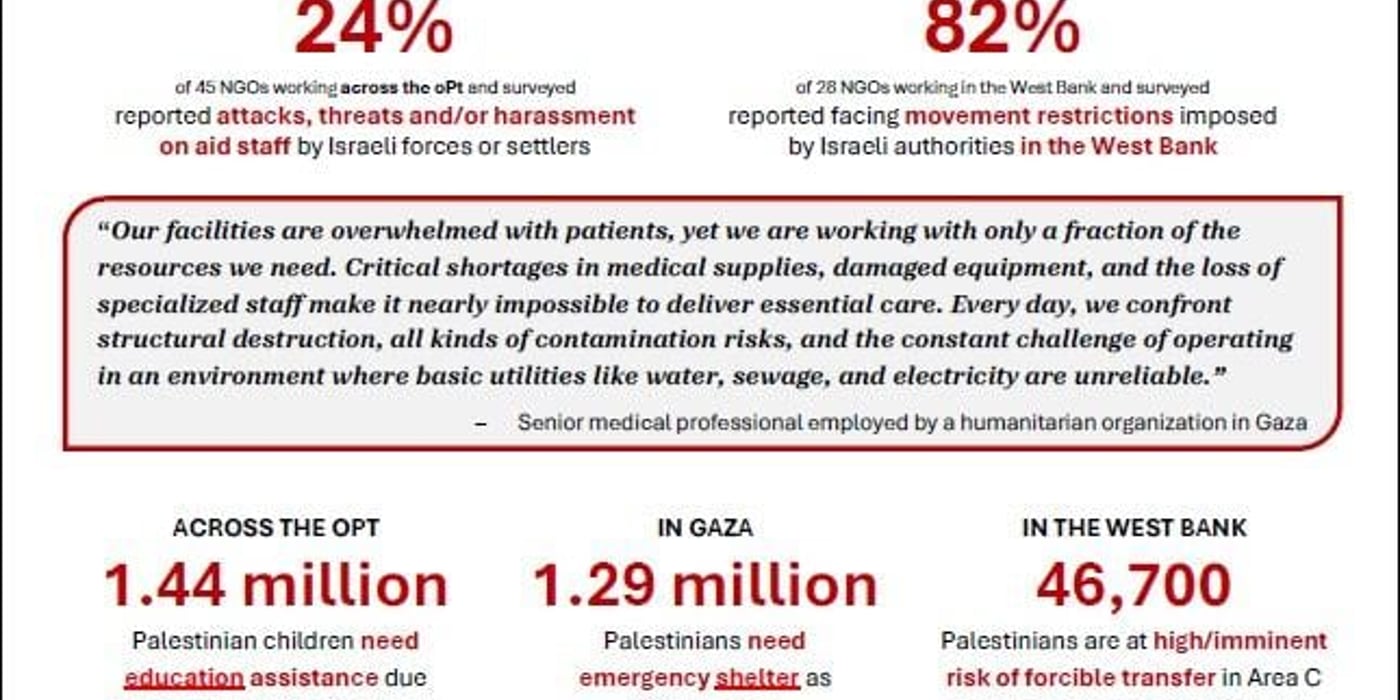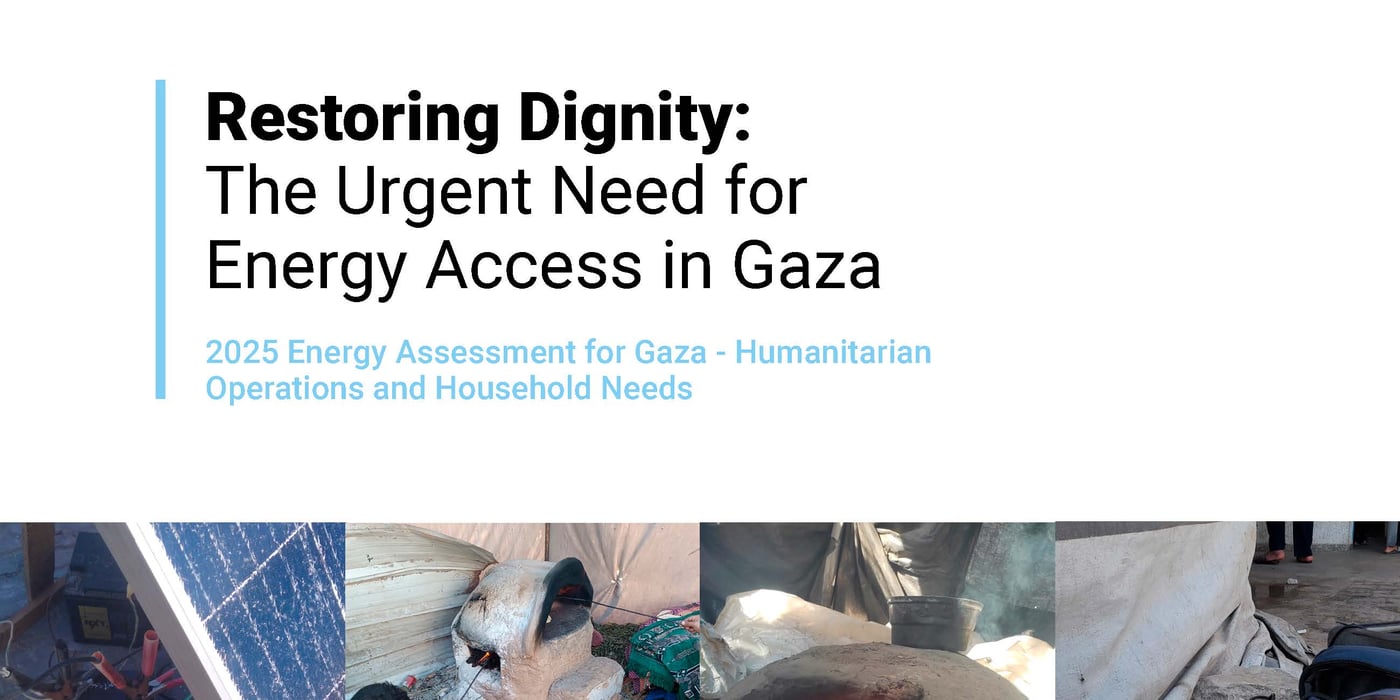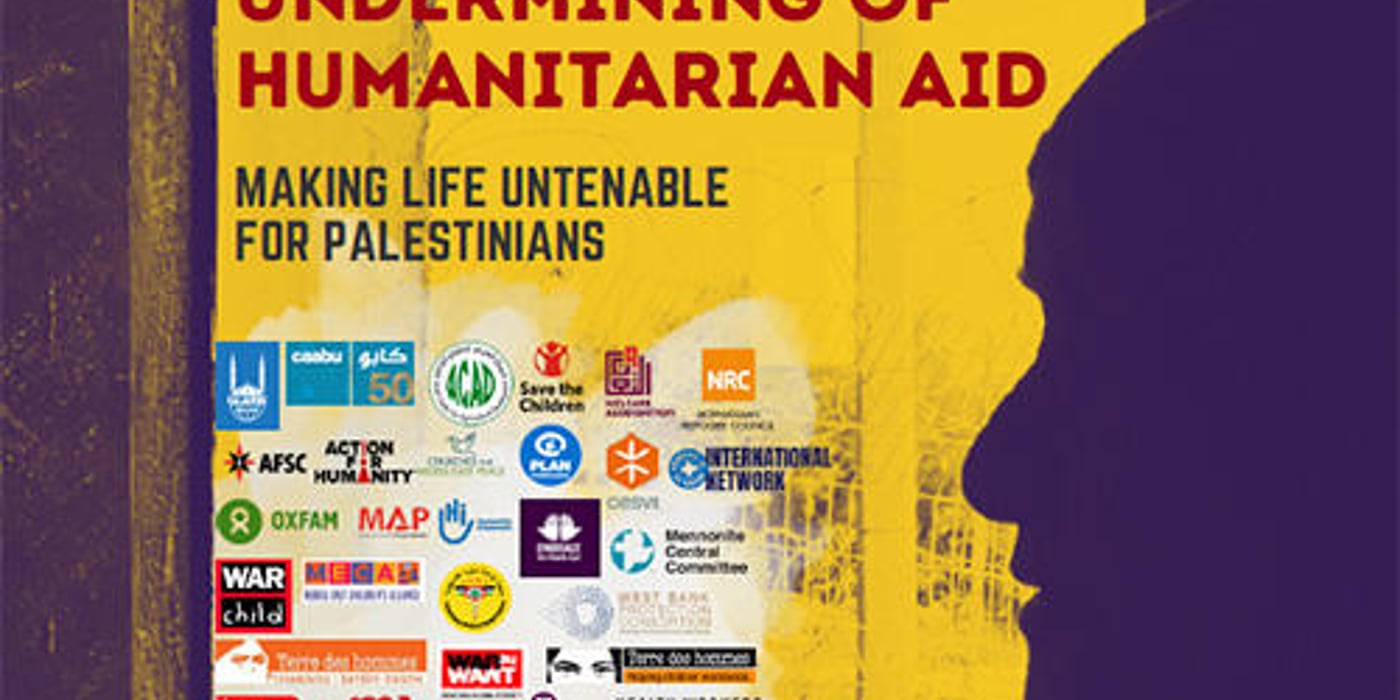The West Bank, including East Jerusalem, is also facing severe challenges. Israeli military action – coupled with government-backed settler violence – continues to displace Palestinian families and further destabilise the region.
Despite severe restrictions on aid, the Norwegian Refugee Council (NRC) is continuing with its efforts to save lives and ease suffering.
What’s happening in Palestine?
In October 2023, attacks by Palestinian armed groups resulted in the deaths of approximately 1,200 Israelis and foreign nationals, with over 250 people taken hostage. In response, Israel launched devastating strikes on Gaza, leaving entire communities in ruins. Many homes were demolished, leaving families in desperate need of shelter.
The Israeli siege severely restricted aid access, resulting in critical shortages of food, clean water and medical supplies that put countless lives at risk.
In the West Bank, including East Jerusalem, violence continues to rise, with Israeli settler attacks increasing in frequency and intensity. Bedouin and herding communities are among those most affected, regularly being displaced as illegal settlement expansion seizes more Palestinian land.
The international community must act now to prevent further loss of life and uphold the rights of Palestinians.
Our response
We’re working with our partners in Gaza and the West Bank, including East Jerusalem, in the following areas:
- Water, sanitation and hygiene – responding to flood emergencies and ensuring communities have safe drinking water and adequate sanitation facilities.
- Shelter and settlements – helping families to rebuild war-damaged homes and providing them with essential household items, like mattresses and blankets.
- Livelihoods and food security – enabling people to access livelihood opportunities and become more self-sufficient, as well as providing cash assistance to vulnerable families.
- Education – training teachers and counsellors in schools and displacement camps, and providing psychosocial support to children who have experienced trauma.
- Protection from violence – helping communities to protect themselves and working with specialist child protection and gender-based violence services.
- Information, counselling and legal assistance – helping to protect people from demolition, eviction and confiscation orders, as well as access restrictions and discrimination.
Our operations
NRC office established: 2009
Areas of operation: West Bank, including East Jerusalem, Gaza
Country Director: Alix Journoud
Contact: palestine@nrc.no
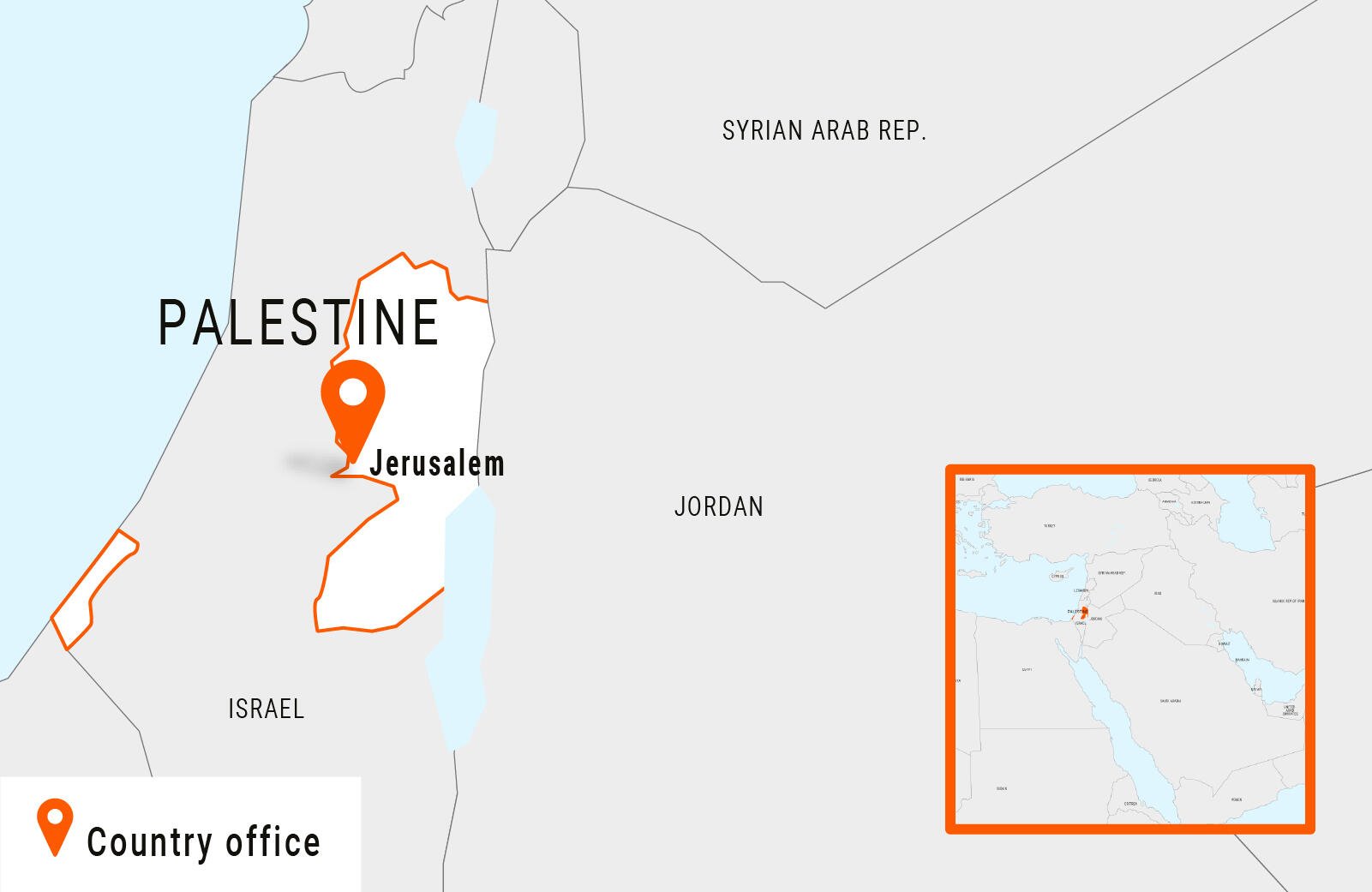
Our impact
In 2024, we assisted 284,068 people through our programmes in Palestine:
-
17,472Education
-
189,432Shelter and settlements
-
7,876Protection from violence
-
27,209Information, counselling and legal assistance
-
167,080Water, sanitation and hygiene
-
106,319other NRC activities
Note: some people received more than one type of assistance.



